| |
Date |
Event(s) |
| 1 | 1609 | - 1609—1614: First Anglo-Powhatan War
The Anglo–Powhatan Wars were three wars fought between settlers of the Virginia Colony and Algonquin Indians of the Powhatan Confederacy in the early 17th century. The first war started in 1609 and ended in a peace settlement in 1614.
|
| 2 | 1620 | - 1620—1640: The Great Migration to America
The Great Migration to America
|
| 3 | 1622 | - 1622—1632: Second Anglo-Powhatan War
The Anglo–Powhatan Wars were three wars fought between settlers of the Virginia Colony and Algonquin Indians of the Powhatan Confederacy in the early 17th century. The second war lasted from 1622 to 1632
|
| 4 | 1623 | - 1623: Settlement of Dover, NH
Dover, New Hampshire, is a city rich in history and modern development. As the oldest permanent settlement in New Hampshire and the seventh in the United States, Dover was established in 1623 by William and Edward Hilton at Pomeroy Cove on Dover Point.
https://en.wikipedia.org/wiki/Dover,_New_Hampshire
|
| 5 | 1634 | - 1634—1662: Before the King’s Daughters: Filles a Marier
The Filles à Marier refer to the marriageable girls who immigrated to New France between 1634 and September 1663 seeking a better life. Unlike the Filles du roi, their passage wasn't paid for by the French crown, nor did they receive the “king’s gift” when they married. Although less well known than the Filles du Roi, most people with French-Canadian ancestry have at least one of these brave women as their ancestors.
 Filles a Marier Filles a Marier
|
| 6 | 1636 | - 1636—1638: Pequot War
The Pequot War was an armed conflict that took place in 1636 and ended in 1638 in New England, between the Pequot tribe and an alliance of the colonists from the Massachusetts Bay, Plymouth, and Saybrook colonies and their allies from the Narragansett and Mohegan tribes. The war concluded with the decisive defeat of the Pequot. At the end, about 700 Pequots had been killed or taken into captivity. Hundreds of prisoners were sold into slavery to colonists in Bermuda or the West Indies; other survivors were dispersed as captives to the victorious tribes.
The result was the elimination of the Pequot tribe as a viable polity in southern New England, and the colonial authorities classified them as extinct. Survivors who remained in the area were absorbed into other local tribes.
|
| 7 | 1640 | - 22 Oct 1640: Signing of the Dover Combination
This agreement, known as the "Combination of the People of Dover to Establish a Form of Government," was a significant early step towards self-governance in the American colonies.
|
| 8 | 1642 | - 1642—1653: Iroquois Wars
The Beaver Wars (Mohawk: Tsianì kayonkwere), also known as the Iroquois Wars or the French and Iroquois Wars (French: Guerres franco-iroquoises) were a series of conflicts fought intermittently during the 17th century in North America throughout the Saint Lawrence River valley in Canada and the Great Lakes region which pitted the Iroquois against the Hurons, northern Algonquians and their French allies. As a result of this conflict, the Iroquois destroyed several confederacies and tribes through warfare: the Hurons or Wendat, Erie, Neutral, Wenro, Petun, Susquehannock, Mohican and northern Algonquins whom they defeated and dispersed, some fleeing to neighbouring peoples and others assimilated, routed, or killed.
|
| 9 | 1675 | - 1675—12 Apr 1678: King Philip's War
King Philip's War (sometimes called the First Indian War, Metacom's War, Metacomet's War, Pometacomet's Rebellion, or Metacom's Rebellion) was an armed conflict in 1675–1676 between a group of indigenous peoples of the Northeastern Woodlands and the English New England Colonies and their indigenous allies. The war is named for Metacomet, the Pokanoket chief and sachem of the Wampanoag who adopted the English name Philip because of the friendly relations between his father Massasoit and the Plymouth Colony. The war continued in the most northern reaches of New England until the signing of the Treaty of Casco Bay on April 12, 1678.
|
| 10 | 1688 | - Apr 1688—20 Sep 1697: King William's War
King William's War was the North American theater of the Nine Years' War (1688–1697), also known as the War of the Grand Alliance or the War of the League of Augsburg. It was the first of six colonial wars fought between New France and New England along with their respective Native allies before France ceded its remaining mainland territories in North America east of the Mississippi River in 1763
|
| 11 | 1702 | - 8 Mar 1702—13 Jul 1713: Queen Anne's War
Queen Anne's War broke out in 1702 and was primarily a conflict between French, Spanish and English colonists for control of the North American continent while the War of the Spanish Succession was being fought in Europe. Each side was allied with various Indigenous communities.
|
| 12 | 1704 | - 29 Feb 1704: Deerfield Massacre
The Raid on Deerfield, also known as the Deerfield Massacre, occurred during Queen Anne's War when French and Native American raiders attacked the English colonial settlement of Deerfield, Massachusetts, just before dawn. They burned parts of the town and killed 47 colonists. The raiders left with 112 colonists as captives, whom they took overland the nearly 300 miles to Montreal; some died or were killed along the way because they were unable keep up. Roughly 60 colonists were later ransomed by their associates, while others were adopted by Mohawk families at Kahnawake and became assimilated into the tribe. In this period, English colonists and their Indian allies were involved in similar raids against French villages along the northern area between the spheres of influence.
|
| 13 | 1710 | - 5 Oct 1710—13 Oct 1710: Siege of Port Royal
British captured the Acadian capital Port Royal. The siege of Port Royal, also known as the Conquest of Acadia, was a military siege conducted by British regular and provincial forces against a French Acadian garrison and the Wabanaki Confederacy at the Acadian capital, Port Royal. The successful British siege marked the beginning of permanent British control over the peninsular portion of Acadia, which they renamed Nova Scotia, and it was the first time the British took and held a French colonial possession
|
| 14 | 1722 | - 1722—1725: Dummer's War
Dummer's War (also known as Father Rale's War, Lovewell's War, Greylock's War, the Three Years War, the Wabanaki-New England War, or the Fourth Anglo-Abenaki War) was a series of battles between the New England Colonies and the Wabanaki Confederacy (specifically the Mi'kmaq, Maliseet, Penobscot, and Abenaki), who were allied with New France. The eastern theater of the war was located primarily along the border between New England and Acadia in Maine, as well as in Nova Scotia; the western theater was located in northern Massachusetts and Vermont at the border between Canada (New France) and New England. During this time, Maine and Vermont were part of Massachusetts.
|
| 15 | 1740 | - 1740—1748: King George's War
King George's War is the name given to the military operations in North America that formed part of the War of the Austrian Succession (1740–1748). It was the third of the four French and Indian Wars. It took place primarily in the British provinces of New York, Massachusetts Bay (which included Maine as well as Massachusetts at the time), New Hampshire (which included Vermont at the time), and Nova Scotia. Its most significant action was an expedition organized by Massachusetts Governor William Shirley that besieged and ultimately captured the French fortress of Louisbourg, on Cape Breton Island in Nova Scotia, in 1745
|
| 16 | 1745 | - 12 May 1745—28 Jun 1745: Siege of Louisbourg
The siege of Louisbourg took place in 1745 when a New England colonial force aided by a British fleet captured Louisbourg, the capital of the French province of Île-Royale (present-day Cape Breton Island) during the War of the Austrian Succession, known as King George's War in the British colonies.
|
| 17 | 1754 | - 1754—10 Feb 1763: The French and Indian War
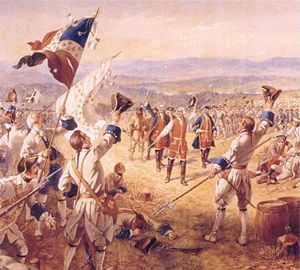 The French and Indian WarThe French and Indian War was a theater of the Seven Years' War, which pitted the North American colonies of the British Empire against those of the French, each side being supported by various Native American tribes. The French and Indian WarThe French and Indian War was a theater of the Seven Years' War, which pitted the North American colonies of the British Empire against those of the French, each side being supported by various Native American tribes.
|
| 18 | 1755 | - 1755—1764: Acadian Expulsion
The Expulsion of the Acadians was the forced removal, by the British, of inhabitants of parts of a Canadian-American region historically known as Acadia, between 1755 and 1764. The area included the present-day Canadian Maritime provinces of Nova Scotia, New Brunswick, and Prince Edward Island, and the present-day U.S. state of Maine. The Expulsion, which caused the deaths of thousands of people, occurred during the French and Indian War (the North American theatre of the Seven Years' War) and was part of the British military campaign against New France.
|
| 19 | 1770 | - 5 Mar 1770: Boston Massacre
The Boston Massacre was a confrontation in Boston on March 5, 1770, in which nine British soldiers shot several of a crowd of three or four hundred who were harassing them verbally and throwing various projectiles. The event was heavily publicized as "a massacre" by leading Patriots such as Paul Revere and Samuel Adams.
|
| 20 | 1775 | - 18 Apr 1775—14 Jan 1784: American Revolutionary War
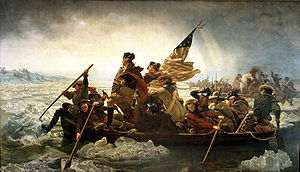 American Revolutionary War American Revolutionary War
- 19 Apr 1775: Battles of Lexington and Concord
The Battles of Lexington and Concord were some of the leading military engagements of the American Revolutionary War. The battles were fought on April 19, 1775, in Middlesex County, Province of Massachusetts Bay, within the towns of Lexington, Concord, Lincoln, Menotomy (present-day Arlington), and Cambridge. They marked the outbreak of armed conflict between the Kingdom of Great Britain and Patriot militias from America's thirteen colonies.
- 10 May 1775: Americans capture Fort Ticonderoga in NY
The capture of Fort Ticonderoga occurred during the American Revolutionary War on May 10, 1775, when a small force of Green Mountain Boys led by Ethan Allen and Colonel Benedict Arnold surprised and captured the fort's small British garrison.
|
| 21 | 1785 | |
| 22 | 1786 | - 1786—1787: Shays' Rebellion
Shays' Rebellion was an armed uprising in Western Massachusetts and Worcester in response to a debt crisis among the citizenry and in opposition to the state government's increased efforts to collect taxes on both individuals and their trades. The fighting took place in the areas around Springfield during 1786 and 1787.
|
| 23 | 1789 | |
| 24 | 1797 | |
| 25 | 1798 | |
| 26 | 1801 | |
| 27 | 1809 | |
| 28 | 1812 | - 12 Jun 1812—16 Feb 1815: War of 1812
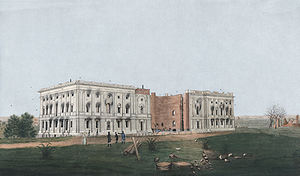 War of 1812
The War of 1812 was fought by the United States and its indigenous allies against the United Kingdom and its own indigenous allies in British North America, with limited participation by Spain in Florida. It began when the United States declared war on 18 June 1812. Although peace terms were agreed upon in the December 1814 Treaty of Ghent, the war did not officially end until the peace treaty was ratified by the United States Congress on 17 February 1815. War of 1812
The War of 1812 was fought by the United States and its indigenous allies against the United Kingdom and its own indigenous allies in British North America, with limited participation by Spain in Florida. It began when the United States declared war on 18 June 1812. Although peace terms were agreed upon in the December 1814 Treaty of Ghent, the war did not officially end until the peace treaty was ratified by the United States Congress on 17 February 1815.
|
| 29 | 1815 | |
| 30 | 1817 | |
| 31 | 1825 | |
| 32 | 1829 | |
| 33 | 1832 | |
| 34 | 1835 | |
| 35 | 1836 | |
| 36 | 1837 | |
| 37 | 1838 | - 1838—1839: Aroostook War
The Aroostook War was a military and civilian-involved confrontation in 1838–1839 between the United States and the United Kingdom over the international boundary between the British colony of New Brunswick and the U.S. state of Maine. The term "war" was rhetorical; local militia units were called out but never engaged in actual combat. The event is best described as an international incident.
|
| 38 | 1841 | |
| 39 | 1845 | |
| 40 | 1849 | |
| 41 | 1850 | |
| 42 | 1853 | |
| 43 | 1857 | |
| 44 | 1861 | |
| 45 | 1865 | |
| 46 | 1869 | |
| 47 | 1877 | |
| 48 | 1881 | |
| 49 | 1885 | |
| 50 | 1889 | |
| 51 | 1893 | |
| 52 | 1897 | |
| 53 | 1898 | |
| 54 | 1899 | |
| 55 | 1901 | |
| 56 | 1909 | |
| 57 | 1913 | |
| 58 | 1917 | |
| 59 | 1921 | |
| 60 | 1923 | |
| 61 | 1929 | |
| 62 | 1933 | |
| 63 | 1941 | |
| 64 | 1945 | |
| 65 | 1950 | |
| 66 | 1953 | |
| 67 | 1959 | |
| 68 | 1961 | |
| 69 | 1963 | |
| 70 | 1969 | |
| 71 | 1974 | |
| 72 | 1977 | |
| 73 | 1981 | |
| 74 | 1989 | |
| 75 | 1990 | - 2 Aug 1990—28 Feb 1991: Gulf War
 Gulf War Gulf War
|
| 76 | 1993 | |
| 77 | 2001 | |
| 78 | 2003 | - 20 Mar 2003—18 Dec 2011: Iraq War
 Iraq War Iraq War
|
| 79 | 2009 | |
| 80 | 2017 | |



 Filles a Marier
Filles a Marier The French and Indian War
The French and Indian War American Revolutionary War
American Revolutionary War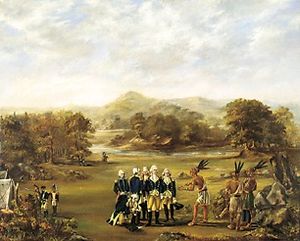 Northwest Indian War
Northwest Indian War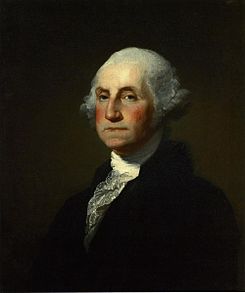 George Washington U.S. Presidency
George Washington U.S. Presidency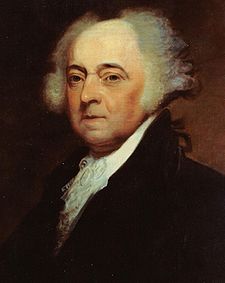 John Adams U.S. Presidency
John Adams U.S. Presidency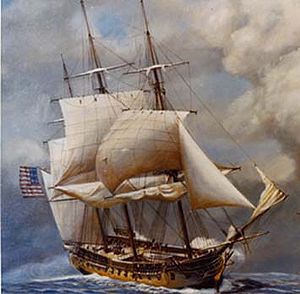 Franco-American War
Franco-American War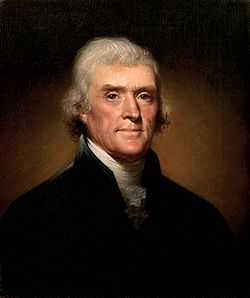 Thomas Jefferson U.S. Presidency
Thomas Jefferson U.S. Presidency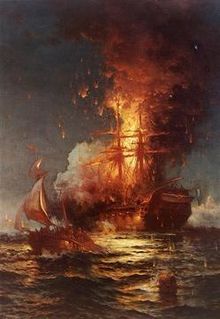 First Barbary War
First Barbary War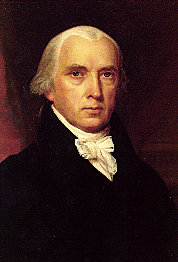 James Madison U.S. Presidency
James Madison U.S. Presidency War of 1812
War of 1812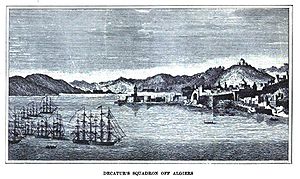 Second Barbary War
Second Barbary War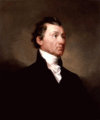 James Monroe U.S. Presidency
James Monroe U.S. Presidency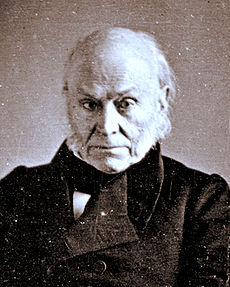 John Quincy Adams U.S. Presidency
John Quincy Adams U.S. Presidency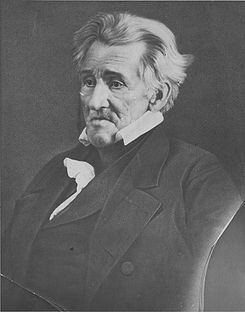 Andrew Jackson U.S. Presidency
Andrew Jackson U.S. Presidency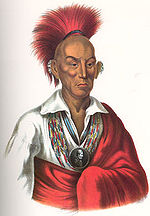 Black Hawk War
Black Hawk War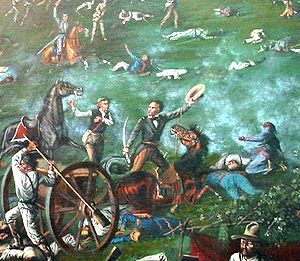 Texas War of Independence
Texas War of Independence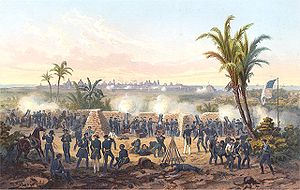 Mexican-American War
Mexican-American War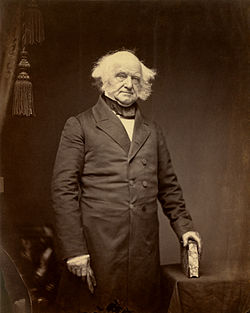 Martin Van Buren U.S. Presidency
Martin Van Buren U.S. Presidency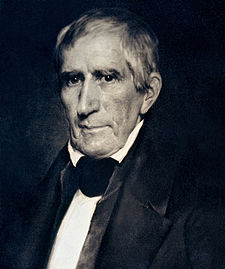 William Henry Harrison U.S. Presidency
William Henry Harrison U.S. Presidency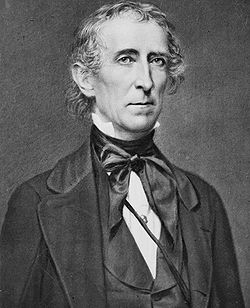 John Tyler U.S. Presidency
John Tyler U.S. Presidency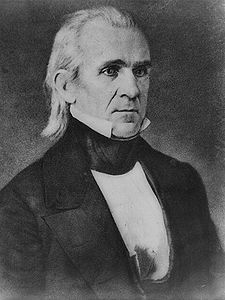 James K. Polk U.S. Presidency
James K. Polk U.S. Presidency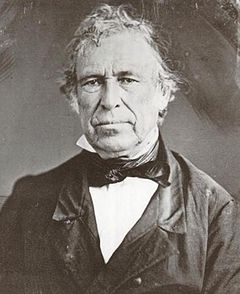 Zachary Taylor U.S. Presidency
Zachary Taylor U.S. Presidency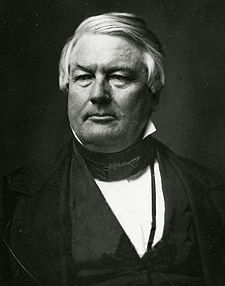 Millard Fillmore U.S. Presidency
Millard Fillmore U.S. Presidency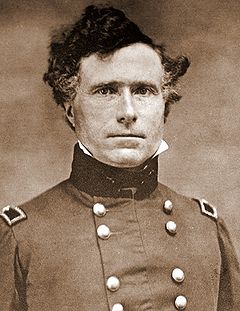 Franklin Pierce U.S. Presidency
Franklin Pierce U.S. Presidency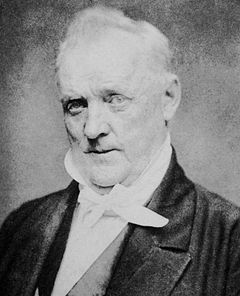 James Buchanan U.S. Presidency
James Buchanan U.S. Presidency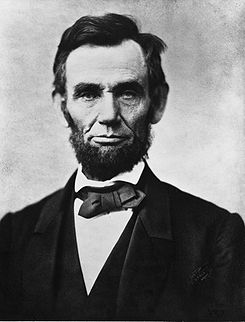 Abraham Lincoln U.S. Presidency
Abraham Lincoln U.S. Presidency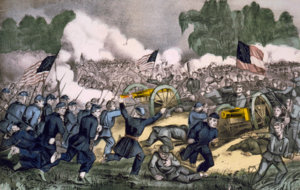 American Civil War
American Civil War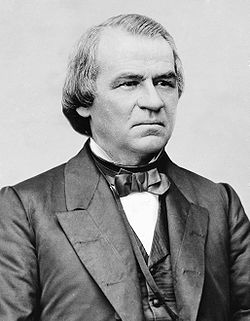 Andrew Johnson U.S. Presidency
Andrew Johnson U.S. Presidency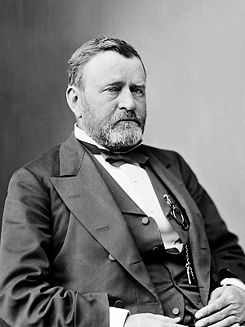 Ulysses S. Grant U.S. Presidency
Ulysses S. Grant U.S. Presidency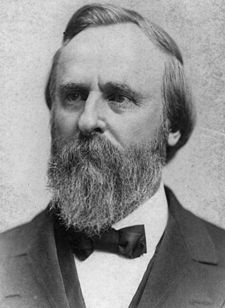 Rutherford B. Hayes U.S. Presidency
Rutherford B. Hayes U.S. Presidency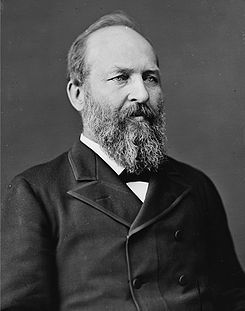 James A. Garfield U.S. Presidency
James A. Garfield U.S. Presidency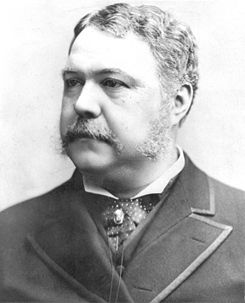 Chester A. Arthur U.S. Presidency
Chester A. Arthur U.S. Presidency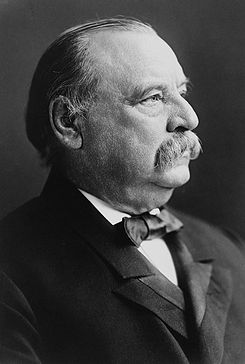 Grover Cleveland U.S. Presidency
Grover Cleveland U.S. Presidency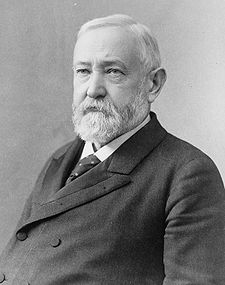 Benjamin Harrison U.S. Presidency
Benjamin Harrison U.S. Presidency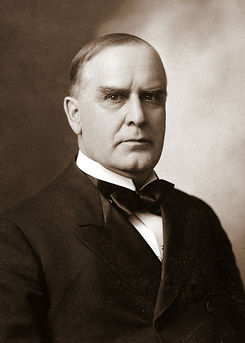 William McKinley U.S. Presidency
William McKinley U.S. Presidency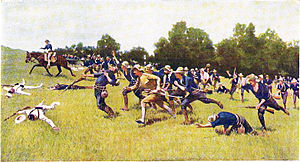 Spanish-American War
Spanish-American War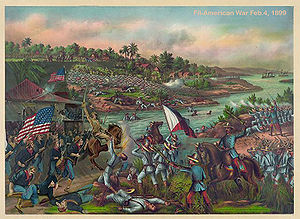 Philippine-American War
Philippine-American War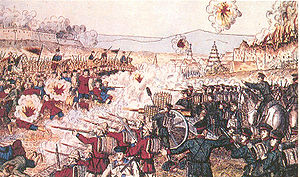 Boxer Rebellion
Boxer Rebellion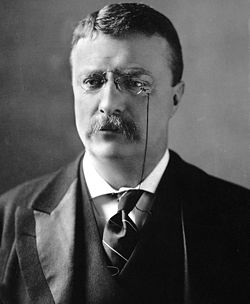 Theodore Roosevelt U.S. Presidency
Theodore Roosevelt U.S. Presidency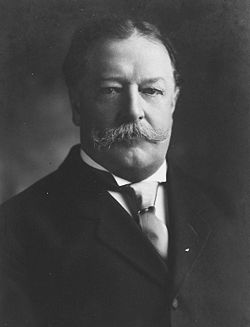 William Howard Taft U.S. Presidency
William Howard Taft U.S. Presidency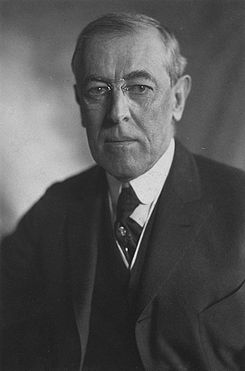 Woodrow Wilson U.S. Presidency
Woodrow Wilson U.S. Presidency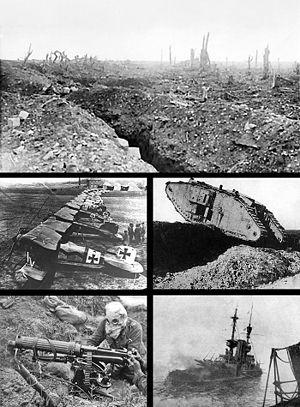 World War I
World War I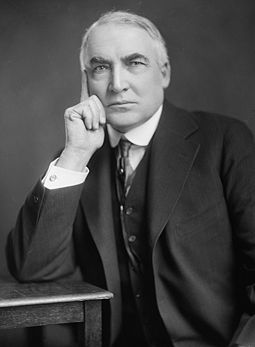 Warren G. Harding U.S. Presidency
Warren G. Harding U.S. Presidency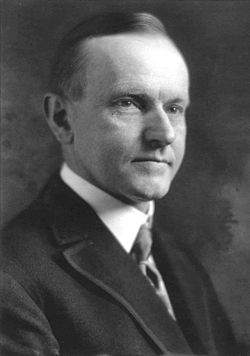 Calvin Coolidge U.S. Presidency
Calvin Coolidge U.S. Presidency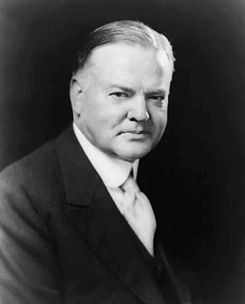 Herbert Hoover U.S. Presidency
Herbert Hoover U.S. Presidency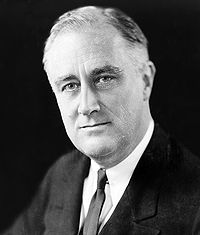 Franklin D. Roosevelt U.S. Presidency
Franklin D. Roosevelt U.S. Presidency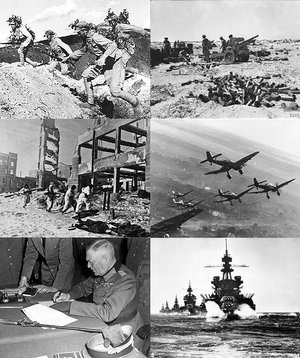 World War II
World War II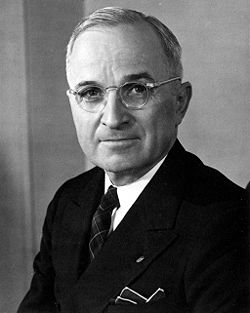 Harry S. Truman U.S. Presidency
Harry S. Truman U.S. Presidency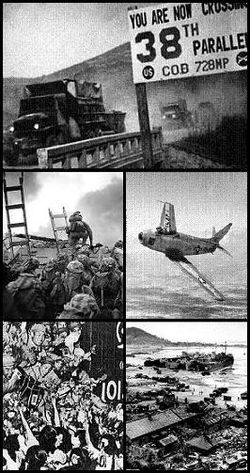 Korean War
Korean War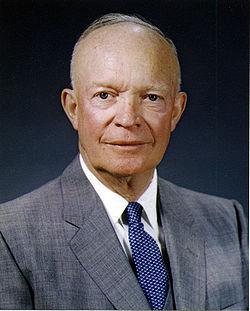 Dwight D. Eisenhower U.S. Presidency
Dwight D. Eisenhower U.S. Presidency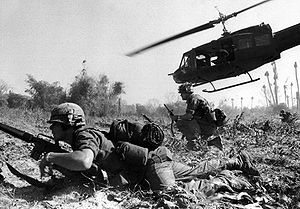 Vietnam War
Vietnam War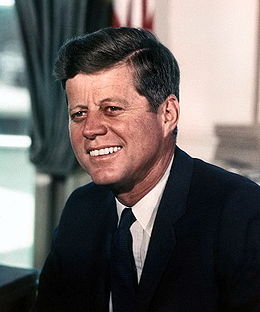 John F. Kennedy U.S. Presidency
John F. Kennedy U.S. Presidency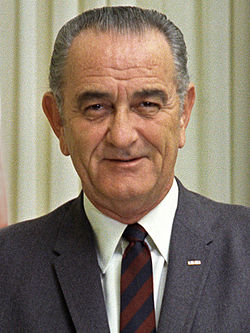 Lyndon B. Johnson U.S. Presidency
Lyndon B. Johnson U.S. Presidency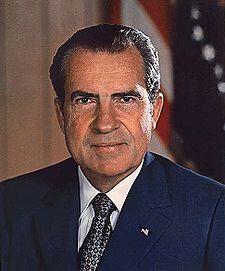 Richard Nixon U.S. Presidency
Richard Nixon U.S. Presidency Gerald Ford U.S. Presidency
Gerald Ford U.S. Presidency Jimmy Carter U.S. Presidency
Jimmy Carter U.S. Presidency Ronald Reagan U.S. Presidency
Ronald Reagan U.S. Presidency George H. W. Bush U.S. Presidency
George H. W. Bush U.S. Presidency Gulf War
Gulf War Bill Clinton U.S. Presidency
Bill Clinton U.S. Presidency George W. Bush U.S. Presidency
George W. Bush U.S. Presidency War in Afghanistan
War in Afghanistan Iraq War
Iraq War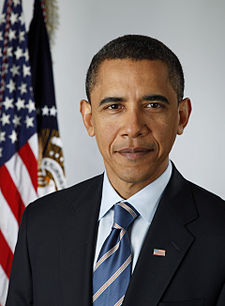 Barack Obama U.S. Presidency
Barack Obama U.S. Presidency Donald Trump U.S. Presidency
Donald Trump U.S. Presidency